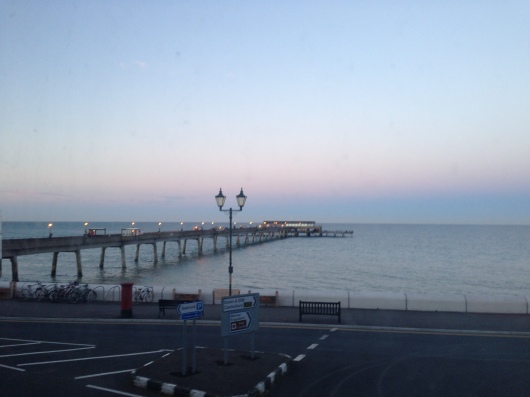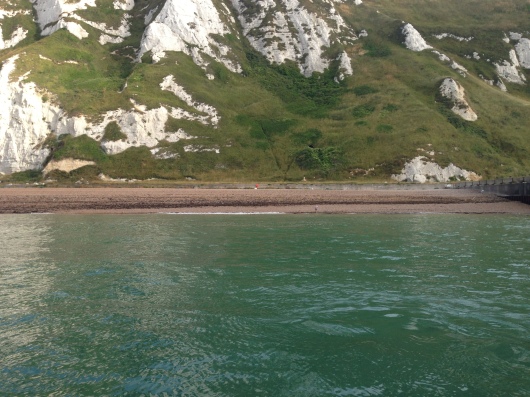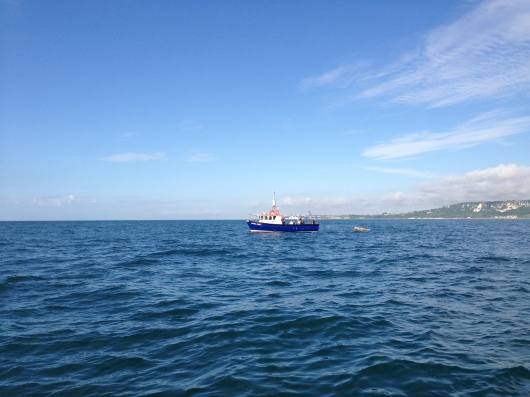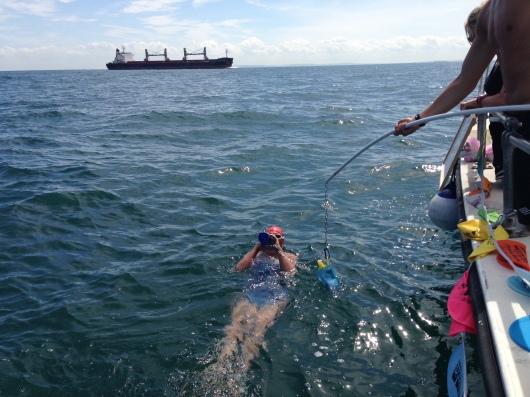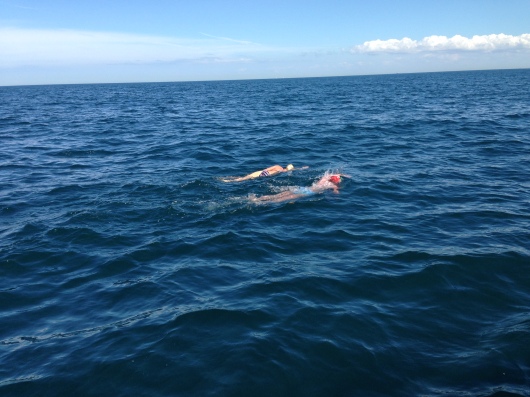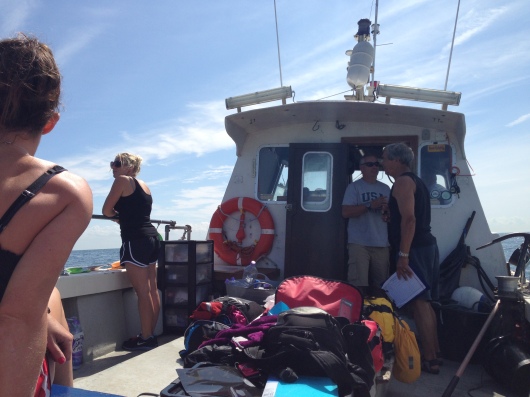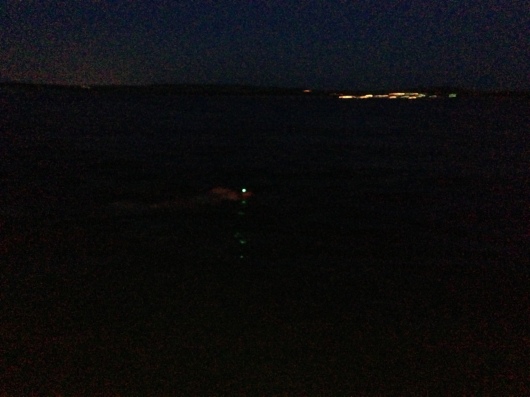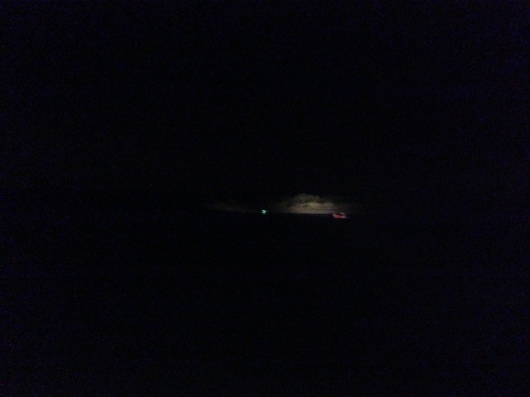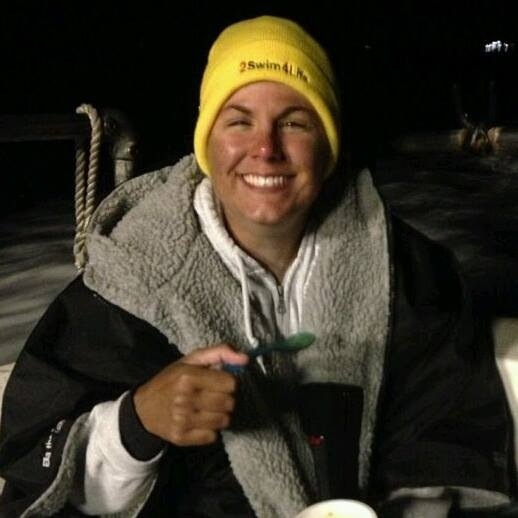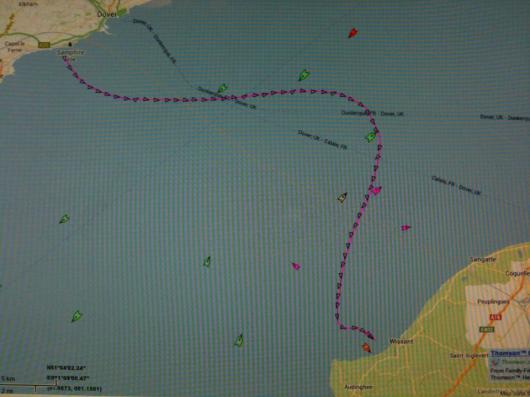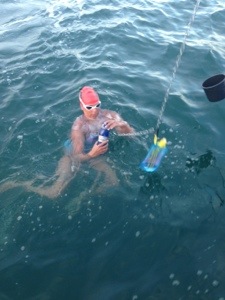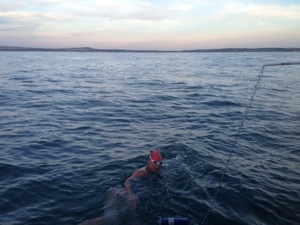As with anything on my blog, I can only write and talk about my own experiences, my journey and my swimming. This is not the ‘right’ way or the ‘best’ way and is certainly not the only way. It is not how I would necessarily recommend other people do it, I don’t feel qualified to tell anyone else how to swim. In the years before my Channel swim though, I found it incredibly helpful to be able to read about other people’s experiences and to learn from talking to them. So I am sharing my experiences and thoughts in the hope that it may help other people take to the water and be successful too. Read about lots of different people’s experiences and pick out what works for you, then do it your way!
The following are, therefore, just my personal top tips for things that helped me and may, hopefully, help you. (They are in no particular order, just written as they come in to my head!)
1. Want to do it
This may sound obvious and basic but you HAVE to want to do it (whatever IT is). And you have to know WHY you want to do it. Without this, there are too many reasons to give up and too many excuses that will distract you. Something like swimming the Channel requires a lot of sacrifice, in many areas of your life, so you have to want it more than you want everything else. I have a quote written on the wall in my kitchen… There are two steps to success: 1. Decide what you wan to do. 2. Do it! So you have to start with the first step. What do you want to do?
2. Work hard and be dedicated
The CS&PF share a quote from the memorial to Captain Matthew Webb “Nothing Great is Easy.” And it’s true. If it was easy, then everyone would do it. You have to work hard. I believe you get back what you put into life. Working hard for me meant getting up early and going for a swim before work, then swimming after work too. Swimming at the weekends and repeatedly saying no to invitations from friends and family. Being exhausted but still turning up at the pool or the lake and training… Hard! Hours and hours of hard work. 1 million metres from November to August were not easy to swim, but that hard work meant when I stood at Samphire Hoe to start the swim, I knew I had given everything I could and worked as hard as I could to be ready. I might not make it to France but it certainly wouldn’t be because I hadn’t worked hard or given my all in training.
3. Prepare
“Failure to prepare is preparation to fail.” And I have seen this a lot over the past couple of years. You have to prepare for everything and prepare early. Know what you will be feeding on and have too much of it, weeks before you need it. Be prepared to swim for longer than you think you might need to. Be prepared to swim before your tide, or after it. A long time after it if necessary. Be prepared for cold water, jellyfish, strong tides, changes in your crew, changes in your pilot, swimming at night, swimming in the rain, being attacked by birds, being sick, feeling ill or tired or disorientated. Be prepared to hurt and swim in pain. Being prepared means planning and practising… Over and over again.
There is only one thing I will never be prepared to do, and that is quit!
4. Plan: Expect the unexpected
Read lots, talk to people and find out as much as you can. Sieve through and filter the information, to formulate a plan that works for you. How much training do you need to do? How many metres will you swim a week? How will you build is up? Who will be on your crew? How will you select a pilot? What will you do to acclimatise to the cold? What will you wear? Which goggles? Write your plan down. Talk about it with other people, who you trust, adjust it where necessary but then stick to it! This goes for training as well as the actual swim. Plan what you will eat and when. Write down what will happen if you start to feel sick. If your stroke rate drops, what is the plan to get I track up? I have a plan. I am a control freak so it is weighty. But this was my dream, so I wasn’t leaving anything to chance. I am very happy to share it with anyone who might find it useful, just email me at elladunn@live.com and then you can adapt it to suit you and your swim. I adapted my plan from one shared with me by the wonderful Channel Swimmers Stephanie Voss, Jenny Zwijnen and Nick Adams. I am also really grateful to Dave Quartermain, Ned Dennison, Paul Savage and Manchester Triathlon Club who helped me with my training plans and schedules.
5. Practise
You don’t want to be doing anything for the first time in the Channel, or during whatever challenge or swim you are doing. Practise swimming in the goggles, hat and costume you will wear. Practise swimming in all your spares. Practise swimming at night, in the rain, in the cold, in the afternoon, into the dawn and into dusk. Practise swimming when you are hungry and sick. Practise swimming when you are tired. Practise feeding using your exact equipment, schedule and foods / powders that you will use on the swim. Practise swimming alongside a boat and with a support swimmer. Practise being stung. Practise weeing while you swim. Practise swimming when you don’t know how long it will be for or where you are going. Practise sprinting, hard, at different times for different distances. Practise breathing to just one side, and the other, and bilaterally. Practise panicking in the water and having to calm yourself. Practise getting hit by big waves. Practise swimming towards the end and it getting no closer. Practise swimming on your own. Practise swimming in the sea. Practise accidentally swallowing salt water when you breathe. Practise swimming in circles while the boat is fixed. Practise being shouted out and encouraged by your crew. Practise not wanting to swim another stroke but keeping yourself in the water.
You get the idea. But I know lots of people who have not practised some of these simple (and seemingly obvious things) and their swims have failed as a direct result.
We are creatures of habit and therefore become what we practise. It’s no good saying, I am tired now and so getting out, but I’ll still in on the Channel swim because that will be different. It won’t be different. It will be what you practised. If you don’t practise swimming at night and your swim ends up starting at 6pm then the dark could throw you or affect you in an unanticipated way and then that’s it. Game over if you can’t keep yourself in the water.
For me, there are two essential ways to practise. The first is physically. You try to have all of these experiences in real life. You don’t just always swim at the same time at the same place with the same people. You vary your opportunities and swims and build up a bank of experiences that you can draw from. The second is mentally. You make designated and specific time to practise everything in your head. You visualise and run through alternative choices and options. Imagine your goggles coming off and the different scenarios that can come out of them. Practise it going wrong and practise it going well.
Through your physical and mental practise you learn strategies to adapt, cope and deal with things whilst continuing to swim.
6. Know the Channel
Do a relay swim first. Crew for other people’s so swims. Get out there and see the Channel. Experience it first hand, in small chunks, before your big swim. Look at maps and learn the different areas and zones. What are the tides like? What is a neap and spring tide? Where does the water come from and go? Wo are other people that have swum it and what did their swim routes look like? I even read books and articles about how the Channel was originally formed.it helped ,e understand the water and where I was. It built my respect and knowledge of the challenge and the swim. This has multiple benefits. It helped make my visualisation more accurate and gave me an understanding that helped me to prepare and plan. I wasn’t just guessing or make it up. Wile I was swimming it helped me to make sense of things. I knew where I as from the direction ships were sailing in (they sail in different directions on the French and English side). I knew when there was lots of flotsam and debris and jellyfish that I was in the Separation Zone, and that if I just kept swimming I would soon be through this. I knew what the Cap was when I saw it, and that even though it seemed so close, it could take forever to reach and that many many swims failed at that point. I knew what it felt like when the tide turned and I knew the species of jellyfish to look out for.
This is the same for any challenge or swim. Educate YOURSELF about it. Don’t rely on other people. Share the relevant bits of this knowledge with your crew and supporters.
7. Remember there is no such thing as a solo
While you will be swimming there is a whole team with you and you can not do it alone. Don’t let your ego take over and make this about I. Respect and appreciate the other people supporting you and involved in your swim and choose them wisely. Be picky about who you involve in what. You need to be able to trust your crew 100% so that you can just swim. Be prepared to be flexible about your crew though, as long as you are in the water that is the most important thing. Don’t allow your swim to fail because you have to make unexpected and / or last minute changes to crew. ,ale sure your crew are well informed and prepared themselves about what to expect and be clear about what you expect and need from them.
8. Prevention is better than cure. Be proactive.
Training for something of this scale puts a huge pressure on your body and mind. The last thing you need is a injury or illness to overcome or prevent your swim. I had an excellent physio who supported me brilliantly. Find someone who knows you and your body as well as understand the challenge you are undertaking and can advice you about strengthening and Injury prevention, as well as helping of things do start to hurt or go wrong. I had a sports massage every week. I took at least one rest day a week. I got plenty of sleep, ate well and built up my training progressively. My big training swims were planned and built on each other with time for recovery in between. I managed to stay injury and illness free for the most serious part of my training, from November to August, and finished the Channel able to continue swimming the next day. Listen it your body and if it needs a break to rest and recover, make sure you do it. You will come back stronger. Your body knows what it needs, so listen to it, and don’t become hung up in what other people are doing and comparing your training to them. Have someone you can call to help keep you on the right path. I would phone Jen because I was stressed about having to miss a training session for work etc and she would give me back my perspective and put me straight. Importantly she could relate and understand because she had been there herself.
9. Be positive
You can choose your attitude. Choose a positive one. Moaning, complaining and wringing aren’t going to change anything for you, they will just make you feel worse. You have chosen to do this because it’s something that you want to do it. Remember that. Lots of things will happen and go wrong and obstacles will be thrown in your path, it’s how you choose to see them and think about the what will determine how they impact on you and your swim.
10. Turn up
I have been lucky enough to be having some conversations recently with someone far wiser and more experienced than myself and we came to the conclusion that actually the most important thing is that you have to turn up. When you turn up, things happen and progress is made. It’s cold, it’s raining, it’s dark, you feel tired and fed up and you are supposed to be doing a hard training session. Just turn up. That’s always the first, and most important step. But can be a huge hurdle that many can not follow through with. They stay at home, on the sofa, in the warm. When all those who turned up are getting a valuable training session in, meeting the new person that has turned up to that session and ends up becoming a good friend, they are setting PBs and leaving you behind. I talked with a friend recently who was very stressed and worried (for lots of reasons) about taking part in her second ever triathlon. She could have quit, she could have not gone. But she turned up. And ending up placing really well and really enjoying herself.
If you don’t turn up you are guaranteed to not succeed. If you turn up… Who knows what will happen.
A challenge like the Channel is unexplainable and unpredictable. You have to be prepared for things that you can’t even think of. A great quote that a fellow Channel Swimmer in Manchester shared with me: Even swimming the Channel does not prepare you for swimming the Channel. Because every time it is completely unique. But prepare for and practise what you can, make sure you turn up, put your heart and soul into it and you can achieve it. Just keep swimming. Ultimately that is all it comes down to. Keep swimming….
